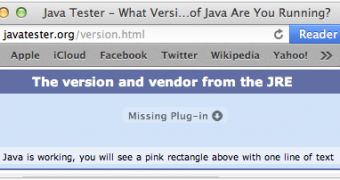Apple has finally decided to remove Java support from its Safari web browser, in an attempt to make the application a bit more secure and protect its users from getting exposed while browsing the web.
The whole idea behind this decision is as simple as it could be.
Until now, the Cupertino-based company delivered Safari with a pre-installed version of Java, which means that Apple had to release its very own patches whenever Oracle updated Java.
The same strategy is being used right now by Microsoft for Internet Explorer 10 and Adobe Flash Player, but in Microsoft’s case, things seem to be a bit more secure thanks to Adobe’s quick reaction to Flash bugs.
Since Java isn’t such an essential web-browsing tool, Apple decided to remove its factory-installed plugin and let users who still need Java to install it manually from the Oracle website.
The latest Java for OS X update comes with a feature that uninstalls the Apple-provided Java applet plug-in from all web browsers. Don’t worry though, if you need Java, you’ll know it because Safari now provides a “Missing Plug-in” button and a small download button to get it in a second.
NakedSecurity writes that “the only downside is that to acquire the needed applet plugin, you have to install Oracle's Java runtime in parallel with Apple's Java.”
“This leaves you with twice as much Java on your Mac: Apple's latest version of Java SE 6, and Oracle's latest version of Java SE 7. (You can't get an Oracle Java runtime to match the Apple one - Oracle doesn't build a 1.6.0-flavoured Java for OS X because that's seen as Apple's job),” Paul Ducklin of security company Sophos explained.

 14 DAY TRIAL //
14 DAY TRIAL //